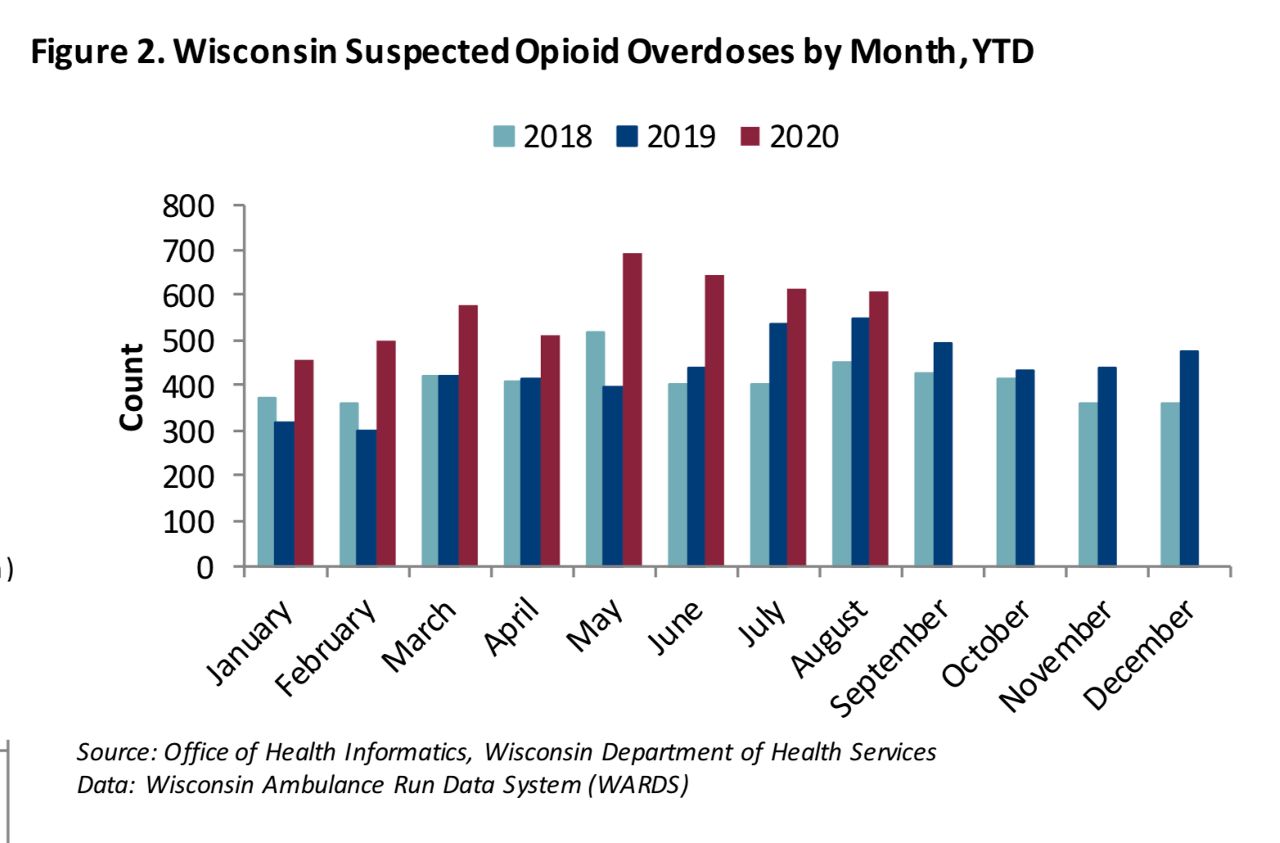MADISON, Wis. — Before coronavirus gripped the country's attention, another public health emergency was raging — Opioid addiction and overdoses.
Across the U.S. opioid overdoses have been on the rise, and in Wisconsin's no exception.
“I think there are probably multiple things behind it, I don't think it's just one thing,” said Dr. Elizabeth Salisbury-Afshar, associate professor at the University of Wisconsin school of Medicine and Public Health and faculty in the Addiction Medicine Department. “But definitely I think this is a high time of stress and anxiety for a lot of folks, which could lead people who maybe haven't been using drugs recently back to use. It could also lead people to maybe more chaotic use.”
On top of the added personal and financial stress people are under, healthcare access has been cut down at varying levels during the pandemic. That has some people struggling with addiction turning to unsafe alternatives.
“We are hearing about there being new more potent, or stronger drugs being cut into the drug supply,” Salisbury-Afshar said. “So someone could be purchasing drugs that has something in there that they weren't expecting that can really put them at increased risk of overdose and death.”
Dr. Halena Gazelka, chair of the Mayo Clinic Opioid Stewardship Program, said nation-wide isolation during coronavirus has been causing problems.
“They're alone, and when there is an issue with substance abuse or overdose there is no one in the home necessarily to call 911 or to administer life saving naloxone,” Gazelka said.
Gazelka says across the country they've seen increases in opioids being laced with stronger forms on the underground market. Putting some people at risk of going over their traditional tolerance level.
Particularly as people look for pain management alternatives for either fear of seeking medical attention because of the pandemic or lack of access.
“We need to work faster because in 40 states at least the rates of overdose deaths are increased during COVID-19 and steadily increasing,” Gazelka said.
In Wisconsin the monthly rate of overdose deaths has held steady this year state wide, but some areas of the state have seen an increase. However, in the time since the pandemic started suspected opioid overdose emergency room visits have sharply risen.
Last year the number of emergency room visits per month was about 212, since the pandemic started that number has jumped to 341.
“It's a very urgent issue because of course opioid overdoses are life threatening of course, so we take it very seriously,” said Mary Henningfield, principal investigator at Wisconsin Voices for Recovery.

Wisconsin Voices for Recovery works with partners around the state to offer support for the recovery community.
Henningfield says people aren't only having access issues to healthcare, but are isolated from support groups, recovery coaches, or even family.
“I think all of us are feeling it, but especially within those who are struggling with substance abuse disorders it's been really a challenging period,” Henningfield said.
She says for someone struggling with addiction, or has a loved one that is, the advice is the same.
“If you need help please reach out, please talk to someone,” Henningfield said.
People struggling with addiction can call 2-1-1 for the Addiction Recovery Helpline. 211 also has resources on its website for recovery help or narcan training near you.
Wisconsin Voices for Recovery also offers trainings on how to become a recovery coach.










